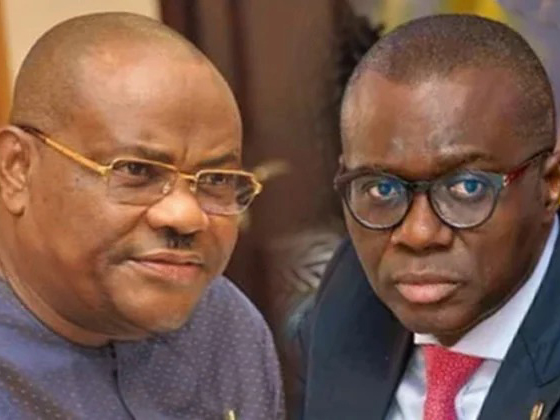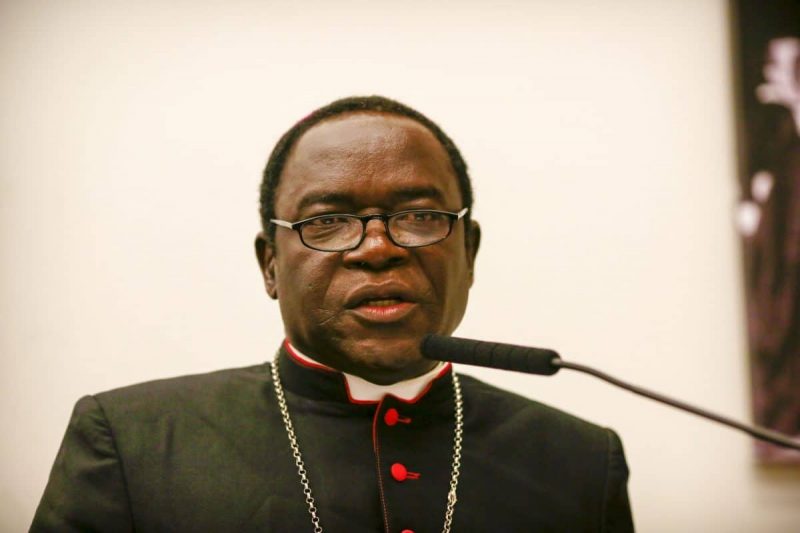The state governments of Rivers and Lagos failed to persuade the Court of Appeal in Abuja on Thursday to prohibit the Federal Inland Revenue Service from collecting Value Added Tax (VAT).
The court denied the two states’ legal teams’ oral requests for a restraining order against the FIRS.
A three-member panel of the court, chaired by Haruna Tsanami, refused to grant the petitions and instructed the attorneys for the two states to file written applications rather than oral submissions.
The FIRS had filed an appeal to the Federal High Court in Port Harcourt, which had granted the Rivers State administration the authority to collect VAT.
Last Friday, the Mr Tsanami-led panel ruled that all parties in the dispute preserve the status quo, a decision that Rivers and Lagos attempted to reverse on Thursday.
The court also postponed the hearing of a motion by Lagos State, which is not currently a party to the litigation, to be included as a respondent to the FIRS appeal, until Thursday (today). Lawyers are at odds.
At Thursday’s hearings, the legal teams representing the states of Rivers and Lagos filed for a restraining order against the FIRS, which sparked outrage.
The request was the subject of tense back-and-forth debates between lawyers on both sides of the divide.
Ifedayo Adedipe and Moyosore Onigbanjo, representing the legal teams of Rivers and Lagos, respectively, sought for a “preservative injunction” prohibiting the FIRS from collecting VAT and sharing the revenues with the states until the outcome of the substantive appeal.
“My Lords, the appellant (FIRS) collects VAT and distributes it among the federation’s states.
“Therefore, if it is not stopped from doing so, and the court finds its action unconstitutional, it will be difficult to recover the VAT proceeds that must have been shared to the States,” Mr Adedipe, a Senior Advocate of Nigeria (SAN), said.
Mr Onigbanjo, the Attorney-General of Lagos State, and SAN, canvassed the same line of argument.
According to him, if FIRS is not restrained from collecting VAT and sharing it among the states of the federation, in the event the court finds its action inappropriate at the end of the day, “then it will be difficult to recover the VAT proceeds that must have been shared to the states.”
Reacting to the oral request by Rivers and Lagos lawyers, FIRS lawyer, Mahmud Magaji, also a SAN, faulted the arguments of his opponents in a combative tone.
“My Lords, I think my learned colleagues are testing the patience of the court, when it is clear that their application has no basis,” Mr Magaji said, adding that the Lagos government lacked the right to make such a request when it was yet to be joined as an interested party.
This submission drew Mr Onigbanjo’s ire who wanted to reply Mr Magaji, but for the intervention of a member of the Appeal Court panel, cautioning the FIRS lawyer to “exhibit higher sense of decorum in addressing his colleagues.”
In their responses to the request, the head of the appellate panel, Justice Tsammani, advised the respondents’ lawyers to file a formal request in respect of their concerns.
Earlier, Mr Onigbanjo, while moving the joinder application for Lagos State to be joined as a respondent to the FIRS’ appeal, told the court that the state would be impacted by the outcome of the appeal..
Lagos State needed to apply to be joined as a party to the appeal because it was not part of the case at the Federal High Court which led to the judgment being contested by the FIRS.
Similarly, Mr Adedipe, counsel for the Rivers State government, did not object to the Lagos State joinder request.
However, the FIRS lawyer, Mr Magaji, vehemently opposed Mr Onigbanjo’s request.
“The joinder application of the applicant (Lagos State government) is faulty from the word go.
“Section 243 (1A & B) of the Constitution does not support a joinder application in a suit like this,” Mr Magaji said.
He further claimed that the Lagos State government was not a party at the trial court in Port Harcourt, saying, “The Federal High Court in Port Harcourt never referenced the petitioner in its judgment.”
In addition, in response to the Lagos government’s request to be added as a party, the FIRS counsel claimed that the state had already filed an appeal in the Supreme Court over the VAT issue, a position that Mr Onigbanjo quickly refuted.
The Lagos Attorney-General informed the appeal court that the litigation Mr Magaji mentioned in his argument was about stamp duty collection, not VAT, which he explained affects all 36 states of the nation.
Mr Onigbanjo further countered appellant’s (FIRS) claim that the Lagos State government was never mentioned in the trial court judgement.
“The Federal High Court in Port Harcourt in its judgement held that it was unconstitutional for the FIRS to collect VAT, thereby authorising the 36 states of the federation, among which is Lagos,” Mr Onigbanjo argued.
Court of Appeal reserves ruling
The court reserved its ruling on the Lagos State government’s joinder application.
A date is to be communicated to lawyers to the parties as soon as the ruling is ready.

Freelanews is a potpourri of news, entertainment, business, events and photos. This is no fake news.





























